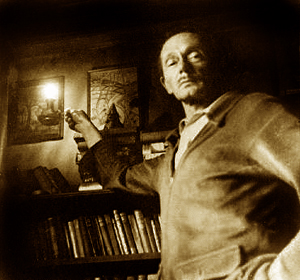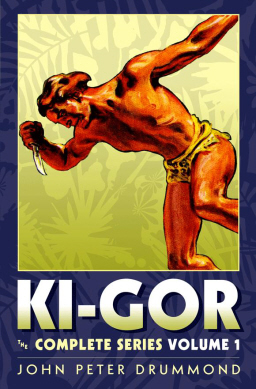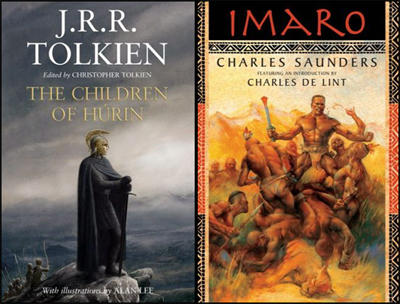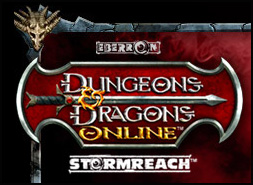I’d been planning to reprint some excerpts from an interview I conducted with David Smith last year, then realized we had another interview with David Smith in the Black Gate web queue… and then I bumped into David Smith at the Windy City Pulp and Paperback convention!
Below you’ll find some excerpts from my interview with David related to the writing of fantasy adventure fiction, most particularly sword-and-sorcery. For the complete interview, visit here. And for the more recent interview, visit the Black Gate web site.
In case you don’t know David Smith, I stole this quick introduction from our very own web page, courtesy of Black Gate web guru Leo Grin:
During the fantasy boom of the 1970s and ’80s, the work of a young Chicagoan named David C. Smith consistently kept sword-and-sorcery readers enthralled with tales that heralded back to the pulp S&S adventures of old.
So now you know. David’s a talented writer and has some gifted insight into the craft. Even if sword-and-sorcery isn’t your cuppa tea I think you’ll find his answers of interest.
In other news, I’m still working my way through submissions and sending out responses. Ditto for John. In about a week we’ll have to step away from that and put finishing touches on issue 11 so it can go to press on time.
Interview with David Smith
What do you think is the appeal of sword-and-sorcery?
It’s pagan. And no matter how sophisticated we think we are or how much inside our heads we are, we know that that is the truth of the world. A lot of sophists and intellectuals and otherwise very bright people operate on the premise that we’re basically rational and sane. We aren’t. We’re animals, we’re pack animals. We are somewhat domesticated and we are well-trained, but we are animals. I think that the best sword-and-sorcery fiction takes us on a walk along that thin line, hints at this truth, is frank about this truth, and lets us exercise our imagination in the face of this truth.
Just as important, though, and perhaps more important, is the existential awareness in sword-and-sorcery fiction. I call it looking into the abyss. It’s more than just facing our mortality; it’s a visceral reaction to ultimate meaninglessness. It’s not just that we’ll die one day; it’s the fact that we really don’t matter, and that we have no ultimate control over anything. There is always that shadow nearby. And that’s what the monster is, or the abyss, or the flying apes or whatever. The best sword-and-sorcery fiction recognizes this aspect in the genre and deals with it in some fashion. It’s no accident that this genre came out of the same alchemy that gave us H. P. Lovecraft’s fiction, and Clark Ashton Smith’s. I think that they were responding to the zeitgeist, the sense of purposelessness that existed after World War I. This uncertainty and ambivalence about life was pervasive in the 1920s. It was what Sartre would call existentialism. Lovecraft answered this dilemma, responded to this by expressing it as gothic science fiction horror, this awareness of our insignificance. Robert Howard’s characters threw themselves against it with all of their might and went down fighting. Clark Ashton Smith’s stories are the most sublime because they exhibit the wit and insight and irony of cultivated black humor. He was an extremely good writer, as well, the best of the bunch.
Also, if you’re going to write this stuff, it can’t hurt to have an emotional or behavioral disorder or to have a cranky streak or a bit of murder in your heart. Even if you just take it out on flies and bugs, the ability to be an s.o.b. once in a while is probably an advantage.
What do you say to the charges leveled against sword-and-sorcery? Particularly that it is sexist and that the genre is played out?
A lot of sword-and-sorcery is sexist. Or at least it was. Most of the books written in the sword-and-sorcery boom of the late ’60s and early ’70s were written by postwar guys. It had its root in men’s fiction of the postwar era. And after the success of The Sword and the Sorcerer and Conan the Barbarian, there was a tidal wave of so-called sword-and-sorcery movies written by really bad scriptwriters — bad even by Hollywood standards — that emphasized beefcake and cheesecake. But a lot of sword-and-sorcery fiction is pagan, earthy, natural, sexy in this way. It’s blue collar. It’s the Heartland. It has a blue collar appeal. This makes me wonder whether the charges of sexism actually have their roots in classism, in class bias. We actually have advanced slightly in the past 30 years or so, you know. We’ve just come through a generation of raising awareness about gender, and we’ve had a lot of debate about social issues, and we’re better off for it. So by this time, I think the criticism is about class or taste more than anything else.
The other thing is that these stories, like all genre stories, quickly can become reduced to a formula, to a ritual, the same thing told the same way over and over. It’s hard to find worth in expression that offers so little originality. Reading these stories and writing them — is that going to be ritualistic behavior each time? Or are we going to try to gain a sense of wonder or insight? Are we going to feel the keenness of life? Turn characters this way and that, turn the plot every which way, come out with something satisfying, something honest, not hollow? Can you tell that story and create a sense of vindication, or of vitality, or of insight, or accomplishment? Sword-and-sorcery can do that. Any kind of story can do that. Can we do it well, and frequently? That’s the question for sword-and-sorcery: Is there anything in it to be taken seriously?
If sword-and-sorcery remains only fanboy stuff, then it deserves to be marginalized. If it can adapt and be used imaginatively in ways other genre fiction has done, then it will become or remain a worthwhile genre. Detective and mystery fiction did this. Westerns did it. Science fiction did. Even horror. Is sword-and-sorcery a satisfactory genre in its own right or is it some sort of subgenre of fantasy? Well, hardboiled is a subgenre of mystery. Romance has its own subgenres. Labels, labels, labels.
Sword-and-sorcery has been treated as a subgenre of fantasy because when Howard was reprinted in the ’60s and ’70s, it was at the same time that Tolkien was reprinted. But sword-and-sorcery is men’s adventure fiction. Morgan Holmes and others have discussed this. It’s Westerns. It’s hard-boiled fiction. It’s noir. But Tolkien created this quasi-Middle Ages with Middle Earth, and Howard had a made-up map, too, so these two writers and their creations were conflated by publishers. And Howard had some stories with castles in them, and we were hit over the head endlessly by pictures of castles and gnomes and sunsets painted by the Brothers Hildebrandt, and it was all basically Victorian kitsch.
If you go back and look at what Howard started with — because sword-and-sorcery fiction starts with him — you find that it wasn’t centrally about making up funny names and building worlds. It was about experience on an elemental level, and he explored that through these quasi-historical stories of his. Patrice Louinet and Rusty Burke have pointed out that Howard was really writing historical adventures with the Conan stories. He preferred to write history, but the research can be daunting and he needed to keep turning out copy, so he answered the drive that way. And he created something original. This material was fresh and immediate in its time, and the other writers of his generation who came after Howard, some of them, continued to develop the genre. Now, there was a lot of hokey, shallow imitation, too, because once you develop something novel, people are going to pick up on the literal elements of it and package it and market it to the nondiscriminating. But we also were graced with stories by Fritz Leiber, for example. And when the second wave of sword-and-sorcery occurred in the 1970s and early 1980s, we had a new generation of writers who took the concept and ran with it. Karl Wagner did acid gothic fantasy or whatever he called it. Charles Saunders created Imaro. Jessica Salmonson did woman samurai stories. Dick Tierney and I probably veered closest to being back in the 1930s and writing material that was “Hyborian” or whatever you want to call it. And there are writers nobody mentions anymore or who almost got into the game before everything changed. Ted Rypel wrote a big series about Gonji, a samurai warrior who finds adventure in medieval Europe. Those books sold like crazy. How come no one talks about Gonji anymore? David Madison had some good stories in Space & Time at the same time that Charles Saunders and I were being published there. Joe Bonadonna placed a few stories but just missed selling a big epic he was writing. The timing was off.
Anyhow, even if we can develop sword-and-sorcery into a new direction and write it well, it will never be regarded as wholly legitimate by intellectuals and academics because those people tend to be snobbish, and the element of physicality annoys them. You know, it really is about sitting around the campfire and looking up at the stars and wondering what is over the horizon. It might be a castle, it might be a monster, it might be any kind of adventure. As far back as we can go in human history, the evidence is overwhelming that human beings always were on the move. That’s a big part of this genre. That and the dark, whatever’s out there just beyond the light of the campfire. I think that this is where the existential element comes in. This is where Lovecraft and Howard are joined at the hip. It’s amusing that some of the Lovecraft fans have to hold their noses when they discuss Howard. That sure isn’t the way Lovecraft himself thought about Howard. But it goes back to intellectuals and academics being inside their heads too much. You know, their guy never sweats. Lovecraft never sweats, but Howard is out there in the Texas sun every day, isn’t he? Lovecraft is a scholar; he’s inside at his desk. Robert Howard is out there shooting rattlesnakes or riding his horse or something, being vital. And the rest of us who write this fiction are out there with him, too. But there is a long tradition to this disdain. It’s the city mouse and the country mouse. Anything physical or having to do with the outdoors is boys’ adventure fiction, or in some other way it doesn’t qualify for serious thought. You know, for ten thousand years, we sat around the campfire telling stories about killing animals and boasting about physical contests and fighting the elements, and I honestly think that we would like to put that behind us. We have gotten comfortable and material, and it is brain power that has gotten us here. The brainworkers have created the modern world, not the physical laborers. I think this bias runs deep in the modern Western psyche.
Something else to keep in mind is that sword-and-sorcery does not grow specifically from the American experience the way Westerns and hardboiled detective fiction do. Sword-and-sorcery is about swords instead of guns. That limits its appeal right there. There are plenty of fans of edged weapons, to be sure, but when you think about America, you think about firearms.
Anyhow, to write good sword-and-sorcery, you need to write good stories, and that’s not easy. Give us characters and dialogue of interest. Show us how the characters grow and change. Show us who they are. Have them look into a deep hole — and have the hole look back at them. That’s what sword-and-sorcery needs. Come up with plots that grow out of people, not props. Throw in some interesting reverses and twists created by characters. Get past this Manichaeanism, this good-versus-evil bullshit. It’s not how the world works. Tell stories about grown-ups, people in desperate situations. That’s sword-and-sorcery.
Sword-and-sorcery virtually disappeared at just about the same time you and Charles Saunders and Richard Tierney and Lyon and Offutt all disappeared — and, of course, Karl Edward Wagner passed away. Sword-and-sorcery has been all but comatose for a long time. What do you think led to this? Why do you think the most promising writers of ’70s and ’80s sword-and-sorcery had either to walk away from the genre or walk away from writing altogether?
There’s a common denominator to all of the writers you mention. I’m not sure who Lyon is, and I can’t speak for Andy Offutt, but the rest of us have several things in common. First, we came out of the pulp tradition, and in many ways we represent the end of the line of pulp fiction as it had flourished from the 1920s through the 1970s. Second, most of us came out of the fanzines, the amateur publications of the 1970s, which is where the pulp tradition was kept alive. Third, those of us who came out of the fanzines achieved professional status but weren’t able actually to build careers because the machinery wasn’t in place for that. But the machinery was never meant to accommodate masculine adventure fantasy fiction, anyhow.
Fantasy fiction in the ’80s and ’90s became domesticated so that it could be regulated by publishers to serve as a corporate profit center. This was a marketing decision. Steering fantasy in this direction grew out of the popularity of the Tolkien pastiches. It also was an expression of the women’s movement. Publishers used the model of Tolkien fantasies, like The Sword of Shanarra, and promoted this sort of domesticated fantasy. It’s about packaging a product, creating a brand, and selling people the same thing consistently. You’re selling a ritual, you’re selling conditioning. The editors and publishers were very successful at this rebranding, your unicorns and elves and dragons and paperback covers with attractive young people walking with staves in the deep forest.
Sword-and-sorcery fiction was dropped in favor of this more lucrative demographic. The marketers of fantasy fiction redefined the genre to optimize mass-market sales, but it left a bunch of us out in the cold. We were the schmucks who were just gearing up to write some really interesting masculine fantasy, and we wound up hanging out there with nowhere to go. Can you imagine if Farnsworth Wright had decided in 1933 that suddenly he wasn’t going to publish any more of a certain kind of story? What if John Campbell had made a sharp turn in the 1940s and decided that he didn’t want to publish any more of some kinds of stories? What if Harlan Ellison had said, Well, I want stories for Dangerous Visions, but not those kinds of stories, or these kinds of stories?
Other kinds of masculine fiction, such as sci-fi war stories, still were published. But for individual reasons, those of us who wrote sword-and-sorcery fiction stopped producing it. Karl Wagner’s output diminished. DAW let it be known that they were no longer interested in publishing any more Imaro stories. I got tired of not having my career advance and dropped out. Dick Tierney returned to the small, private publishers. I’m not sure what happened to Andy. He and I corresponded for a while, and I know he sincerely championed Oron. I wonder whether he ever paid a price for that in the sci-fi and fantasy community!
But there was never a cohesive sense in the marketplace of sword-and-sorcery fiction. No one publisher took it upon himself or herself to champion certain writers or to promote this genre. In retrospect, it looks neat and tidy, but that was not the case at all. It was catch-as-catch-can. Sword-and-sorcery was more viable when we were all publishing in the fanzines. But the only authors who appeared in the digests, for example, were Sprague de Camp, Lin Carter, Avram Davidson. I don’t think any of us broke into Fantastic. I’m not sure any of us even tried. We went to the paperbacks. And someone would buy a book here or some books there, but it was taking advantage of the interest in the Howard stories and it played off the comics and movies. We did have a viable genre of sword-and-sorcery movies there for a while, and they were terrible. A few of them are dumb fun, but as we know, most of them aren’t even stupid fun, they’re just bad. So the few authors who were writing serious, dark, energetic sword-and-sorcery moved on or stopped. There was still S&S Lite. You had some anthologies of stories. But it had all taken on this quasi-Tolkienesque feel.
If you want to create a viable genre out of this, you have to get enough writers and editors and publishers and readers together to create a dynamic, to get it to the point where it is self-sustaining. I’m not sure that that can be done. It’s such a specific kind of story with a unique appeal, and I’m not sure that enough people are sufficiently entertained or interested or intellectually motivated to explore that possibility. You need enough people involved so that you have some creative tension going on, competition and cooperation at the same time, a movement.




